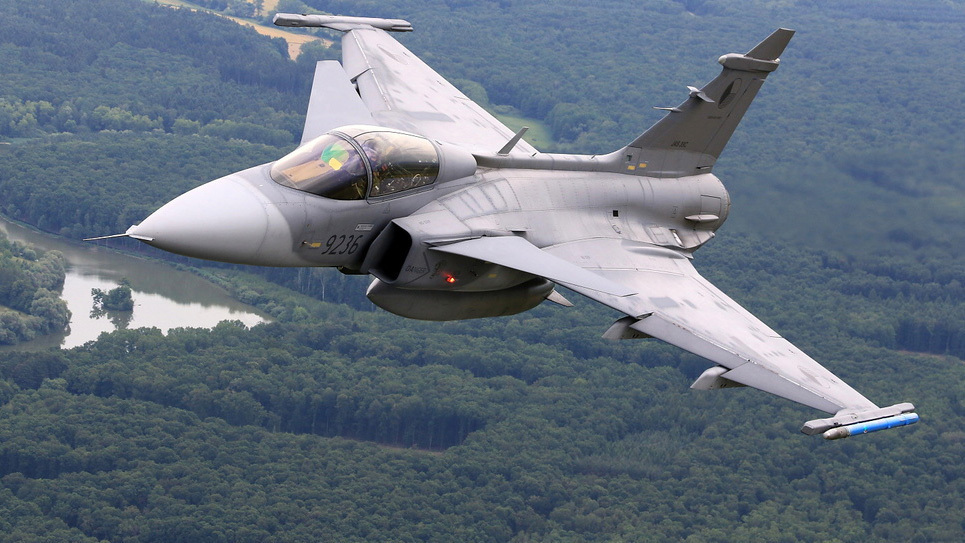The Ministry of Defence accepted the Swedish offer for further use of the JAS-39 Gripen aircraft and the conclusion of the new contract up to 2035 was endorsed by the Collegium of the Minister. Thanks to intensive negotiations, the Ministry reached an offer which is approximately 25 % more advantageous compared to last year’s. An extension on the use of the Gripen will bridge the period until the introduction of fifth generation F-35 aircraft into the Czech Armed Forces.
“After a series of negotiations, we have managed to reach an offer which was significantly more advantageous than the one from last year. Such an agreement is good news to the Czech Republic and its defence capability,” said National Armaments Director Lubor Koudelka.
The current Gripen lease ends in 2027, and the first substantially more modern F-35 will arrive to the Czech Republic in 2031. The F-35 should reach full operational capability in 2035 which is also the year the Gripen lease ends. According to the final offer, the Czech Republic shall pay a total of SEK 6.012 billion (CZK 16.695 billion according to the current rate, including VAT) for the lease of 12 Gripen aircraft, servicing and pilot training. Compared to the Swedish offer from the last year, this represents savings of approximately 25 %.
The lease itself is not a significant part of the offer. The price is influenced especially by the age of the aircraft which are currently starting their third decade of service. At the same time, the prices of labour and materiel in the field of military aviation have significantly increased in the past 20 years. The planned contract thus reacts to the development of prices in the past years, which have well exceeded the long-term average. The offer for the Czech Republic was negotiated along the same lines and conditions as for the Swedish Air Force and other Gripen users.
The reduction of the number of leased aircraft from 14 to 12 (10 of which are one-seat and 2 two-seat) will generate significant savings. “Even with a reduced number of aircraft, the Czech airspace will be protected. We will also ensure a seamless pilot training and their requalification to the F-35 platform,” said Major General Petr Čepelka, Czech Air Force Commander. NATO was informed of the reduction given that such development needs to be reflected in the planning of the NATO Air Policing.
It will be necessary to modernize the Gripen aircraft, also in response to the developments in contemporary battlefields. According to the prepared contract, the Ministry of Defence will pay SEK 1.454 billion (CZK 4.037 billion according to the current rate, including VAT) for the modernisation, which is a vital step for ensuring the operation of the aircraft. The process of modernisation has been underway since 2015.
The Gripen has served the Czech Air Force reliably since 2004. The current lease expires in 2027, meaning it was necessary to find a solution for the future of the supersonic capability. A military recommendation prepared under the previous Government stated that the tasks of the future battlefield can only be provided by fifth generation aircraft. The only fifth generation currently available in the market is the F-35. The outcomes of the military recommendation have also been confirmed by NATO experts.
The Swedish offer was endorsed after discussion by the Collegium of the Minister of Defence. The Collegium serves as an advisory body composed of Deputy Ministers, State Secretary, Directors General of MoD Divisions and other directors, Chief of the General Staff of the Czech Armed Forces, Deputy Chiefs of General Staff, Chief of the Military Office of the President of the Republic, Director of Military Intelligence and other persons, who evaluate the selection of the supplier based on documents presented by the contracting authority before the signature of the contract. The public contract and its assignment proposed by the contracting authority is also verified by the Public Procurement Control Department which evaluates whether the project is in line with the Act on Public Procurement. The process within the Collegium prevents it from being a single-person decision.
